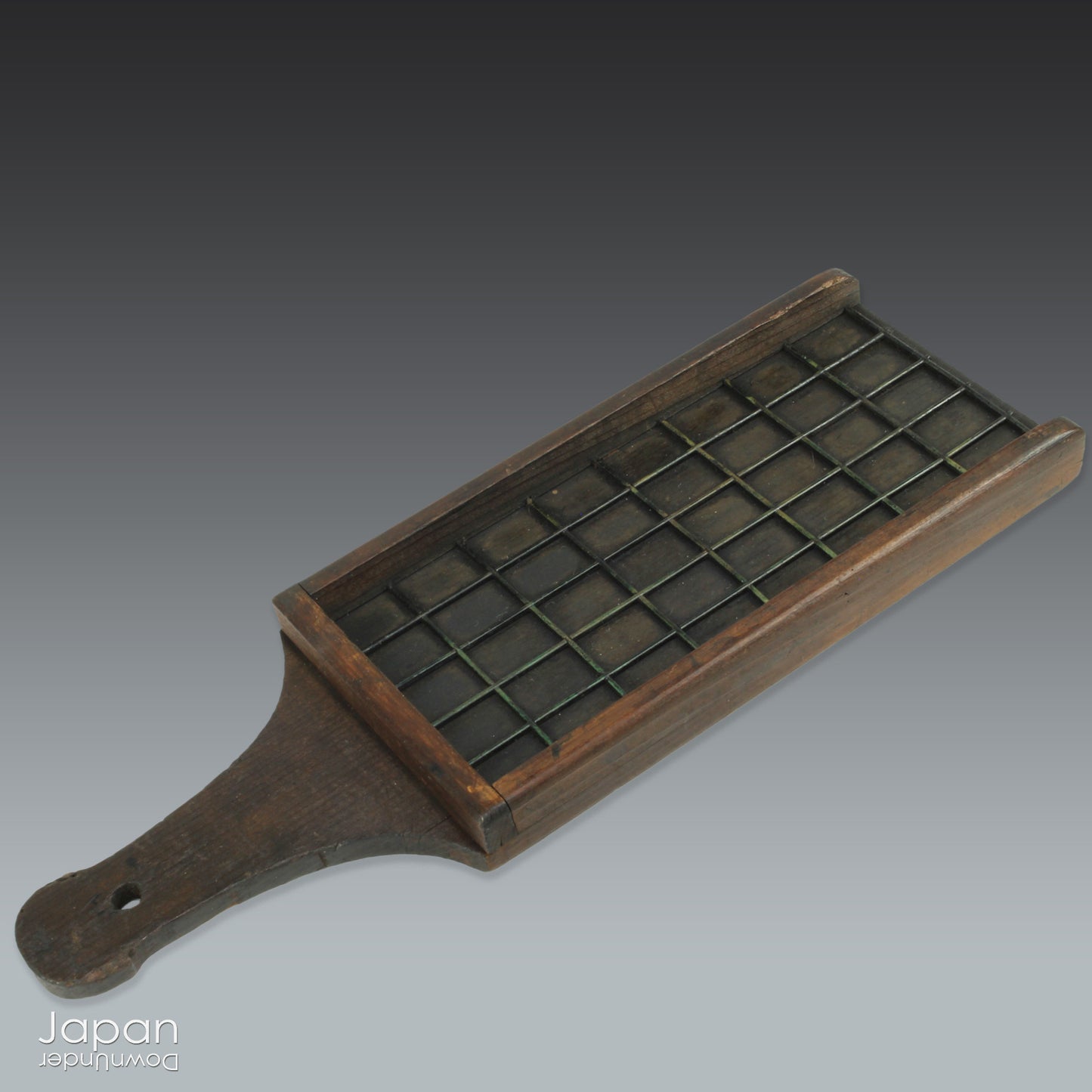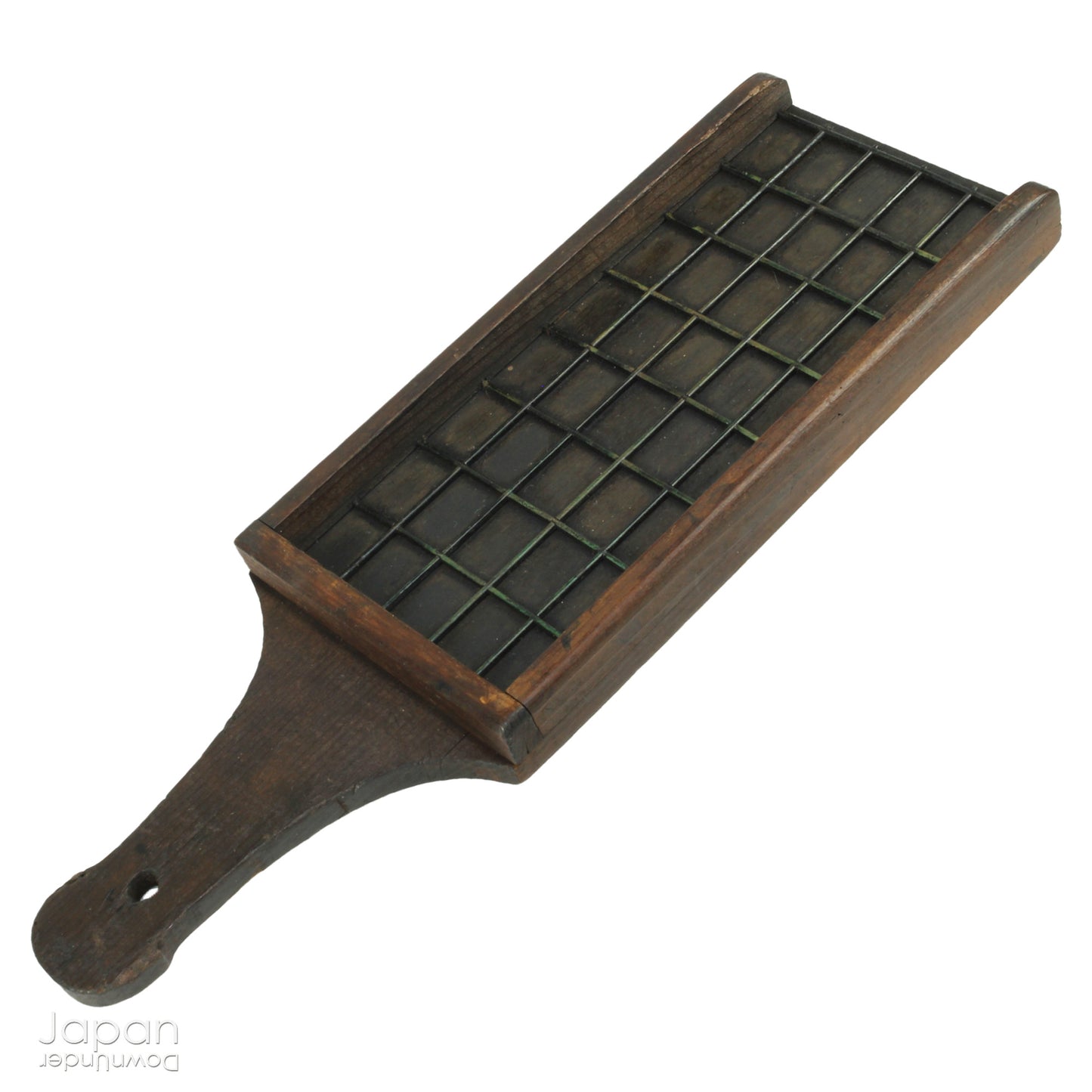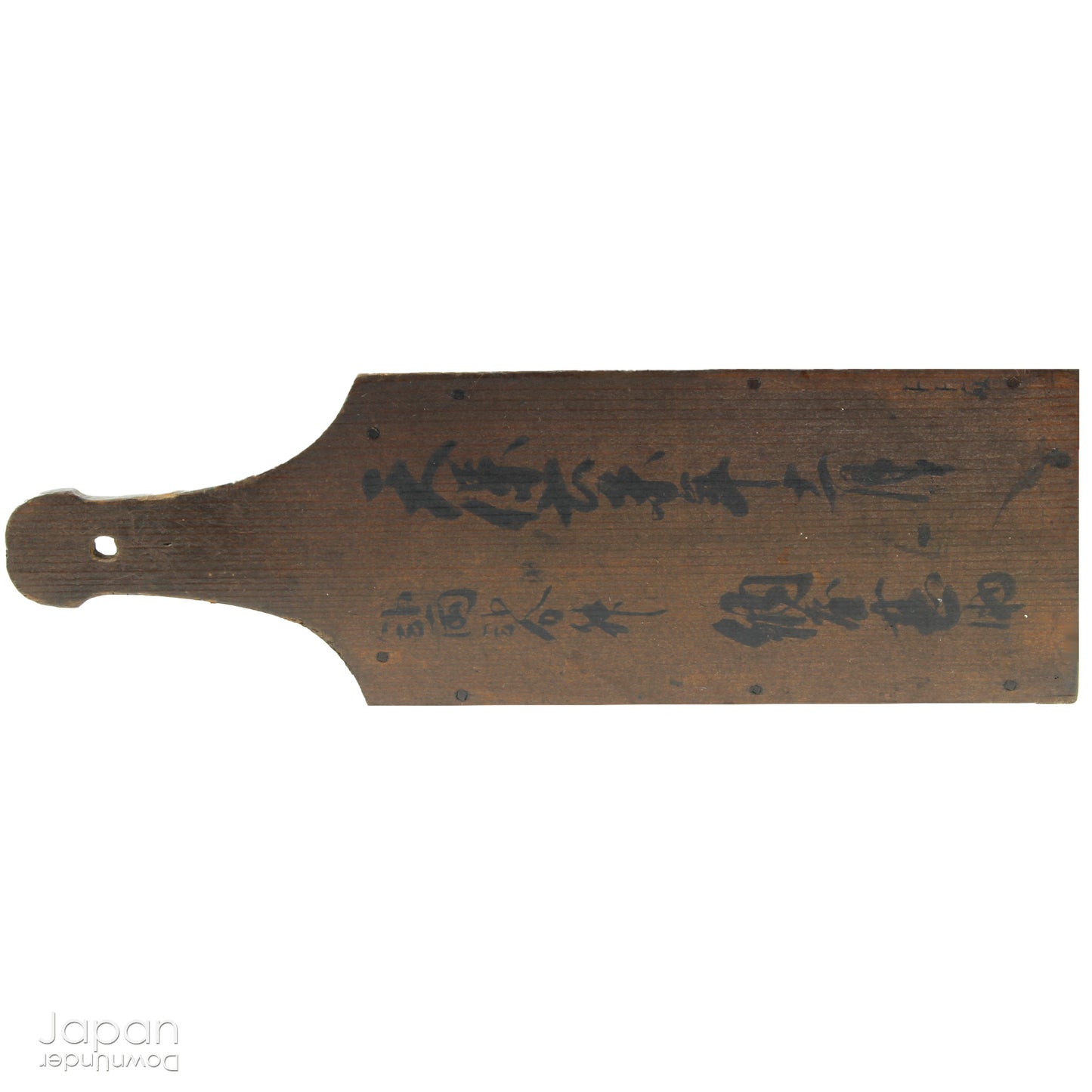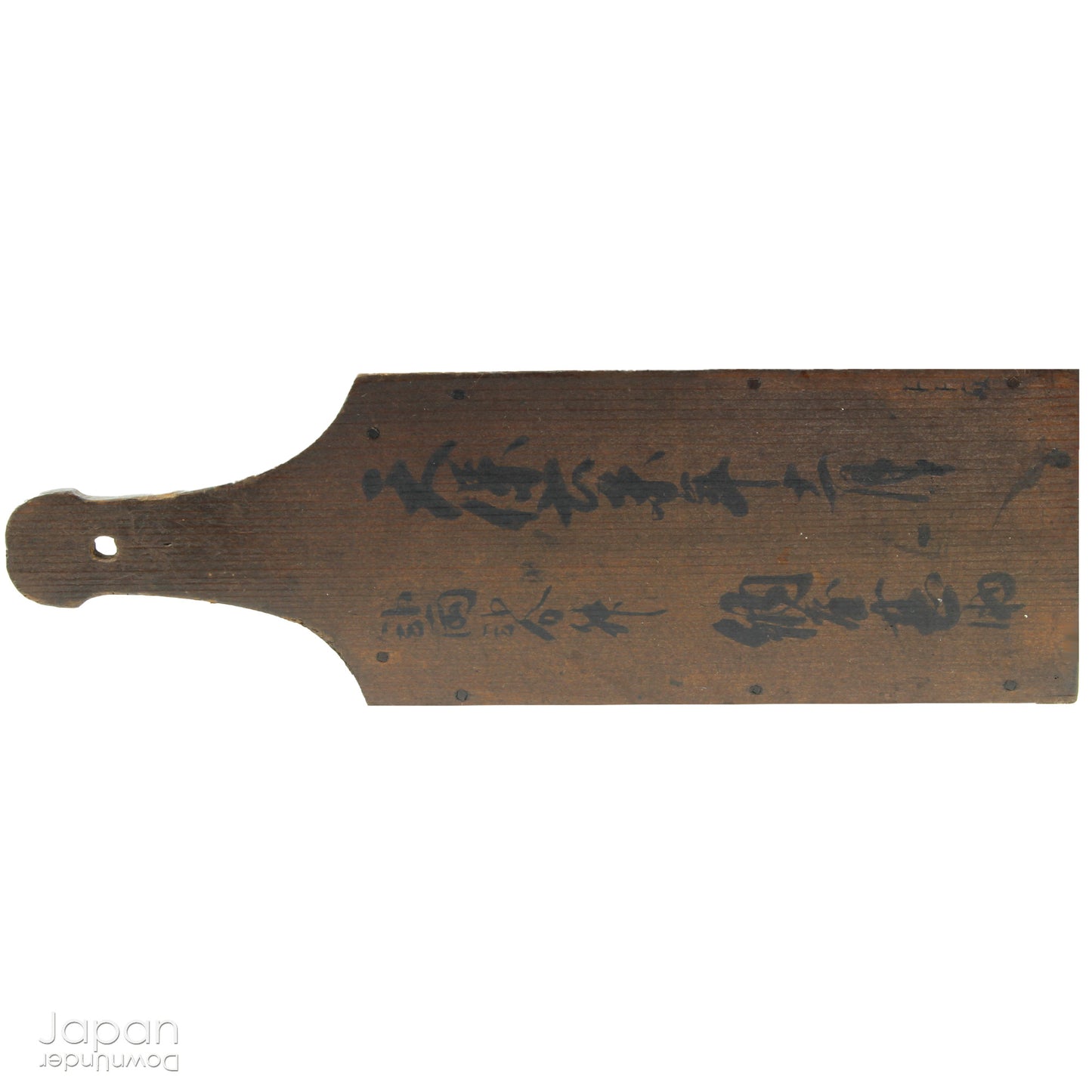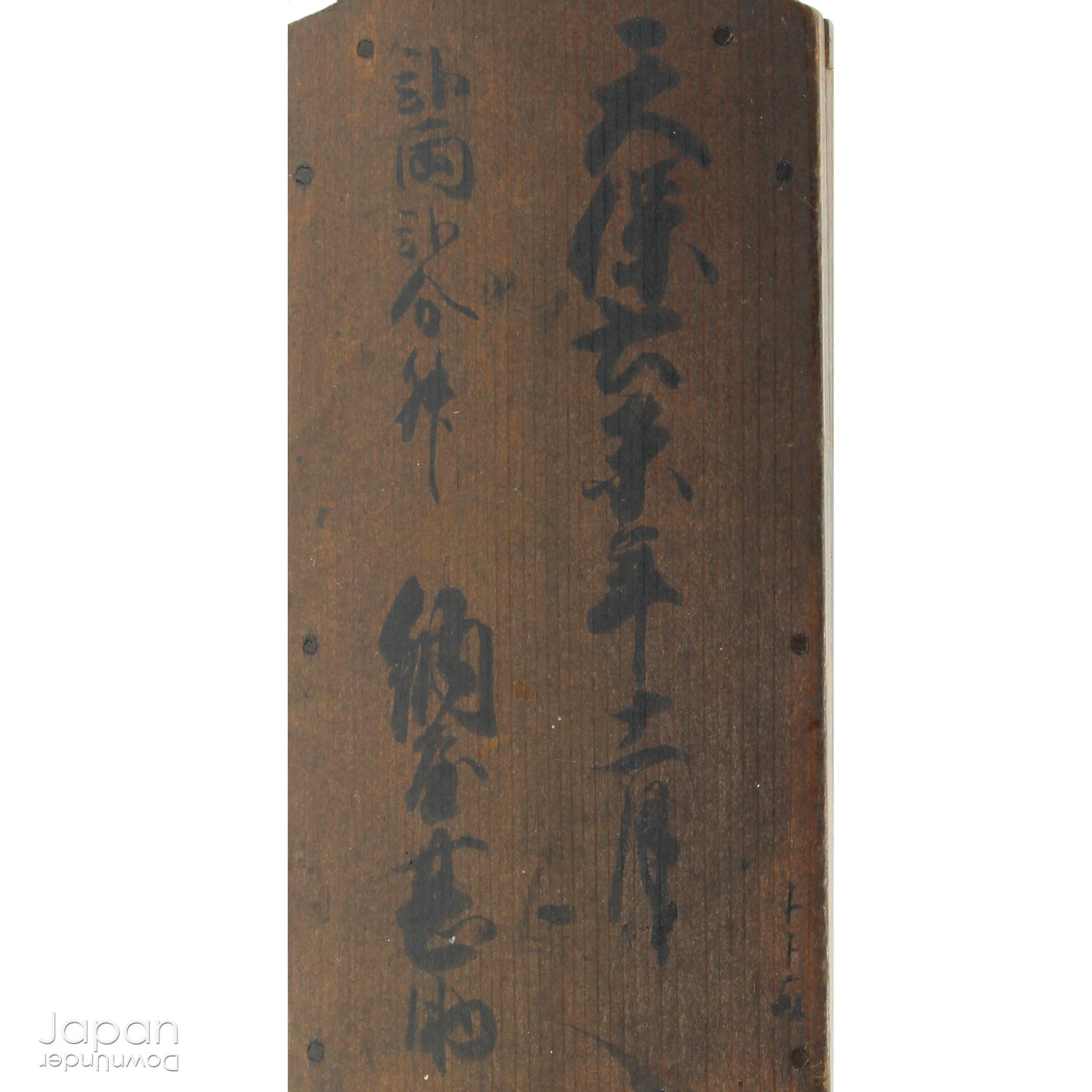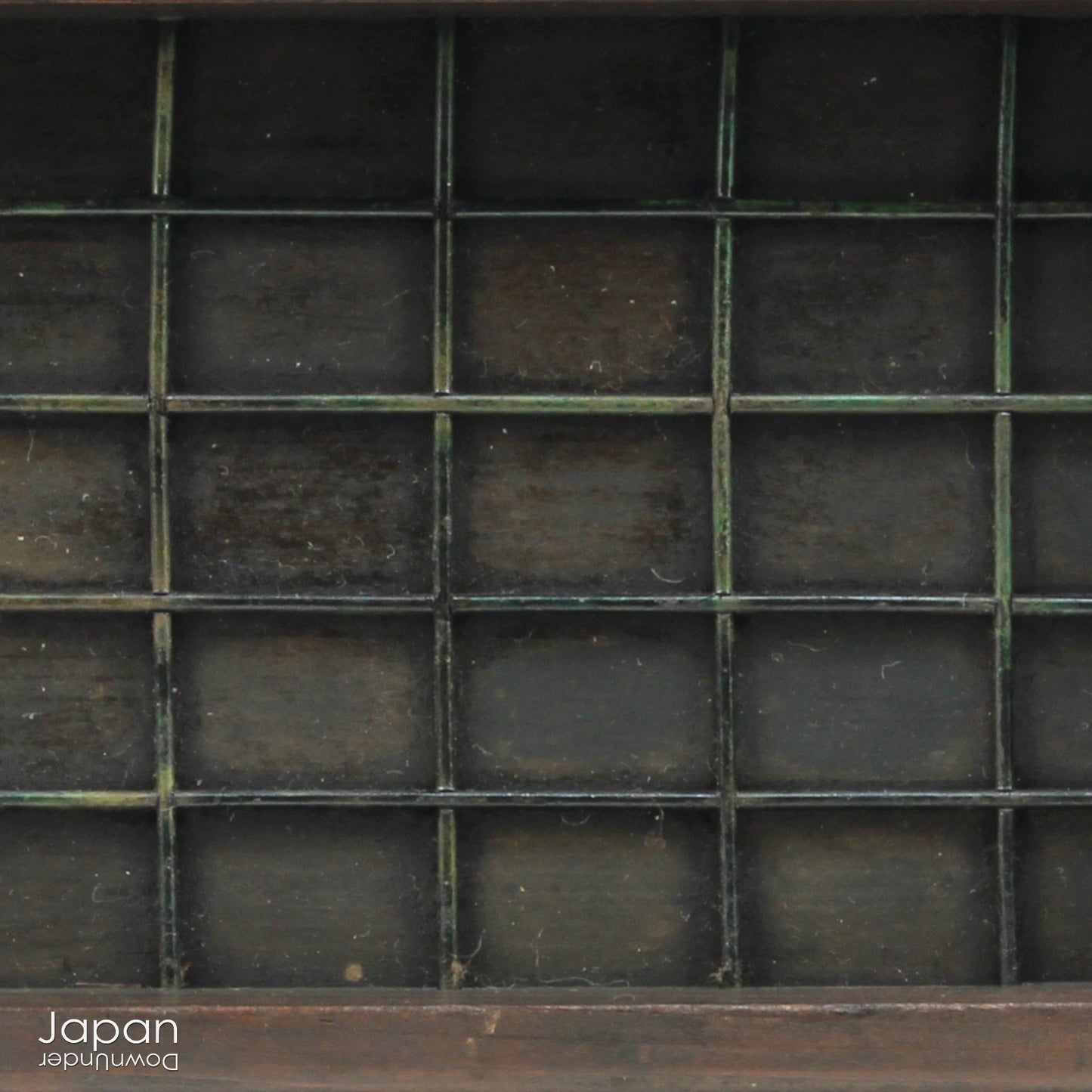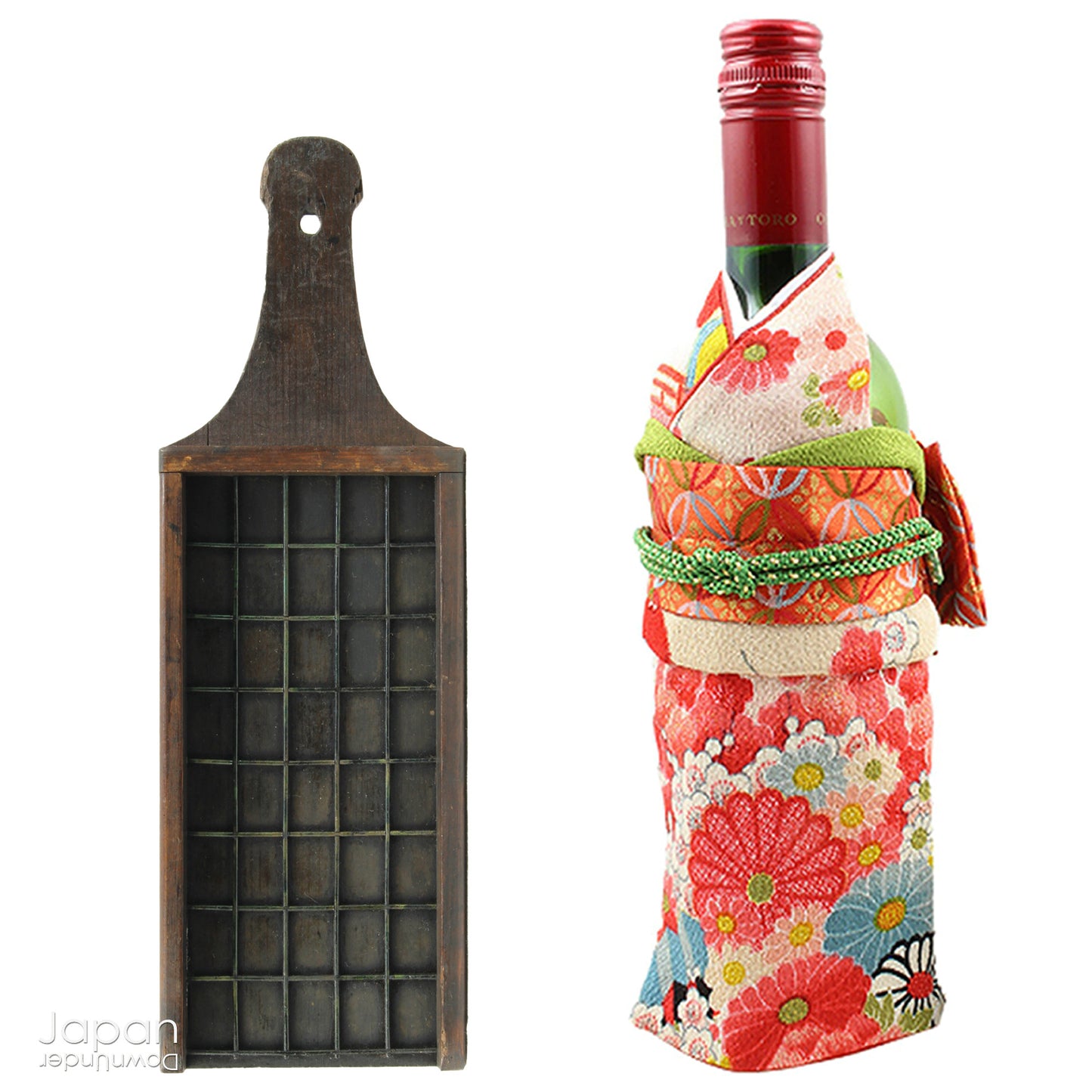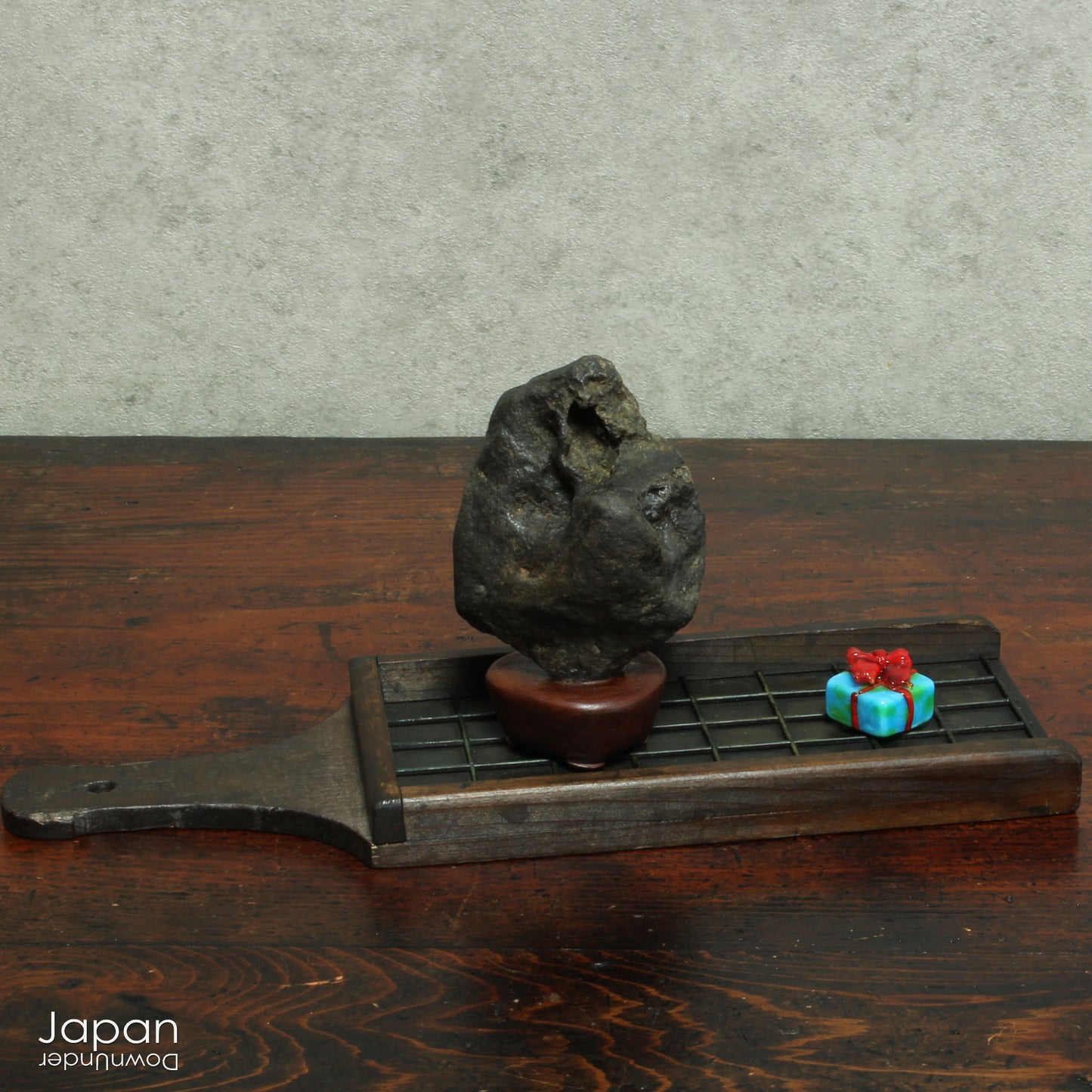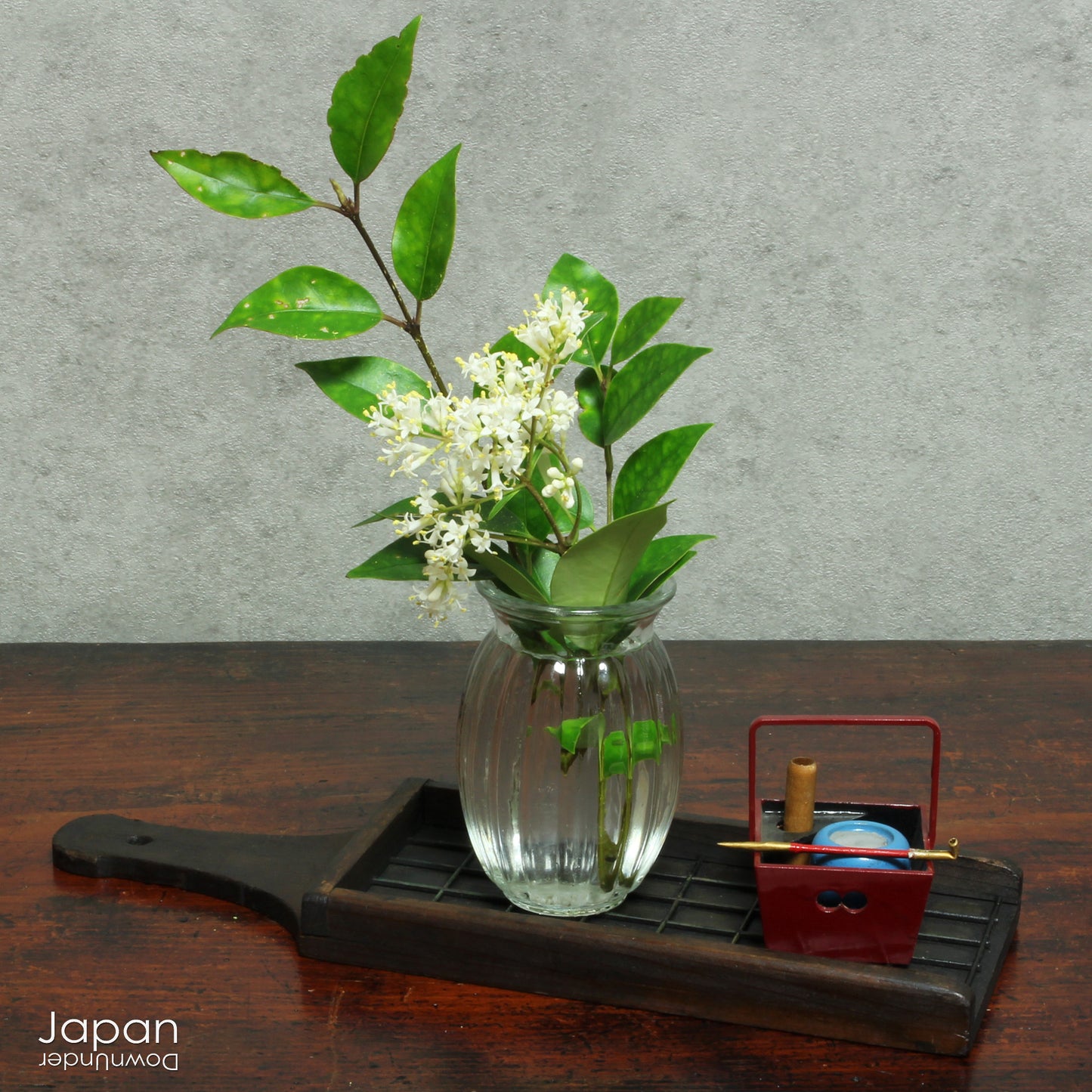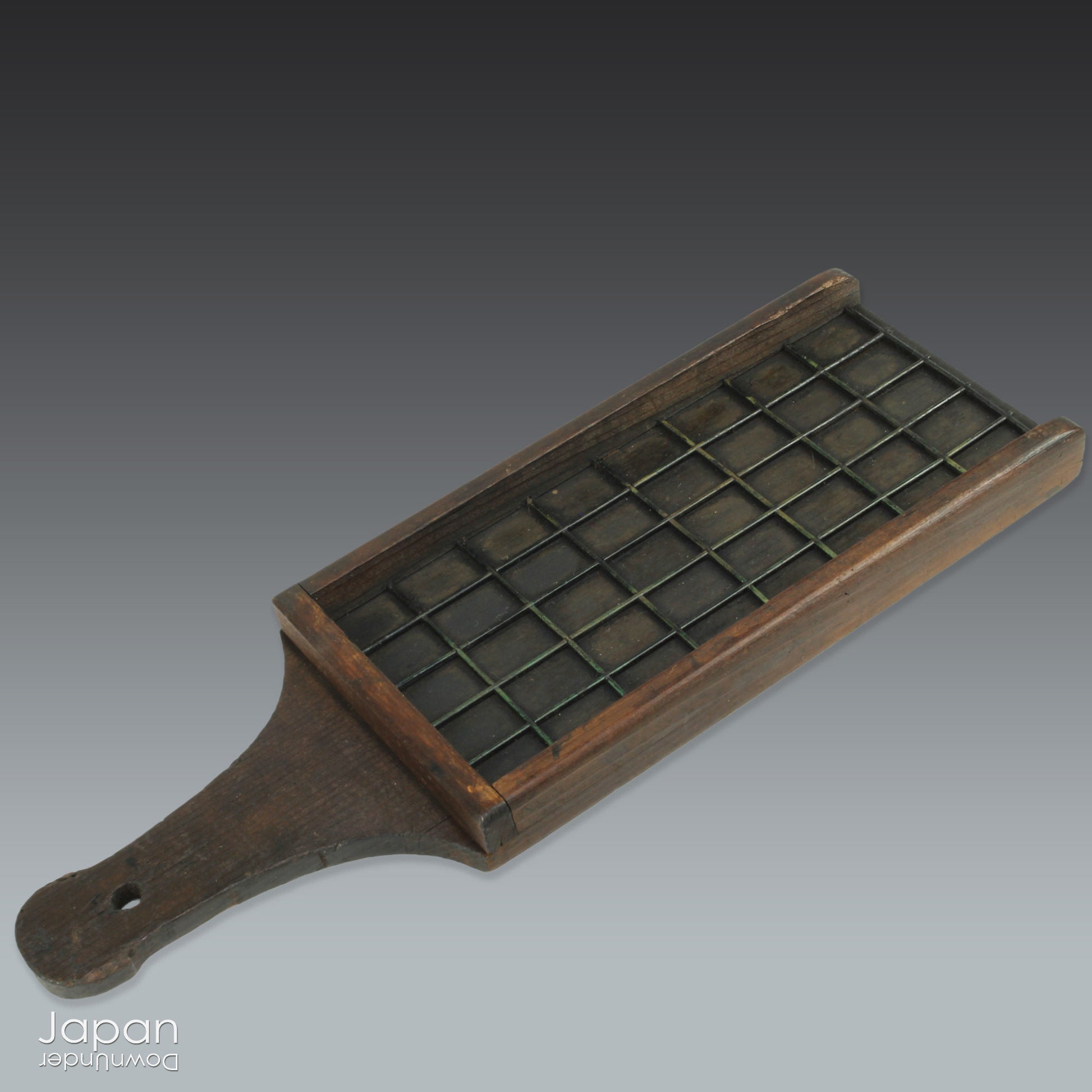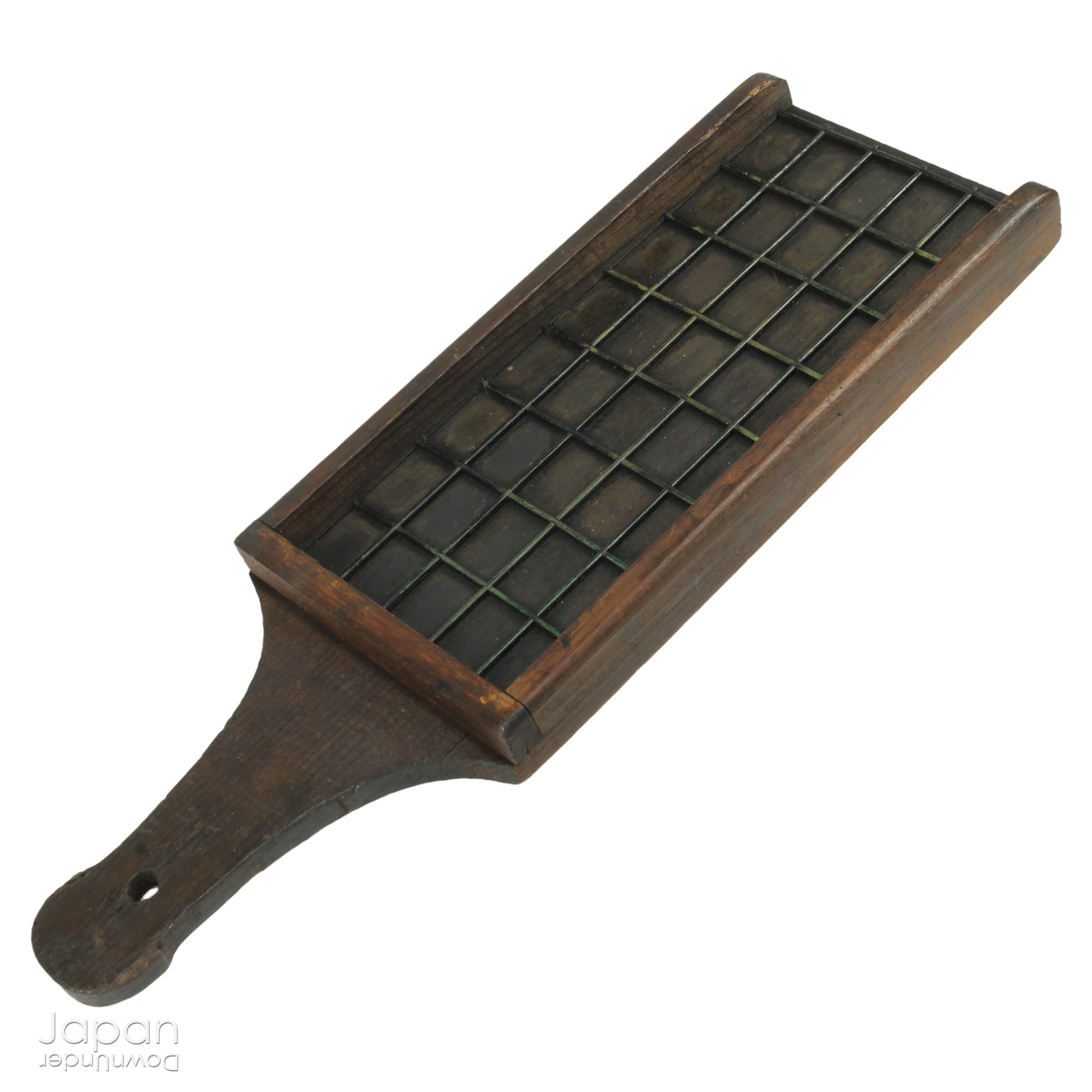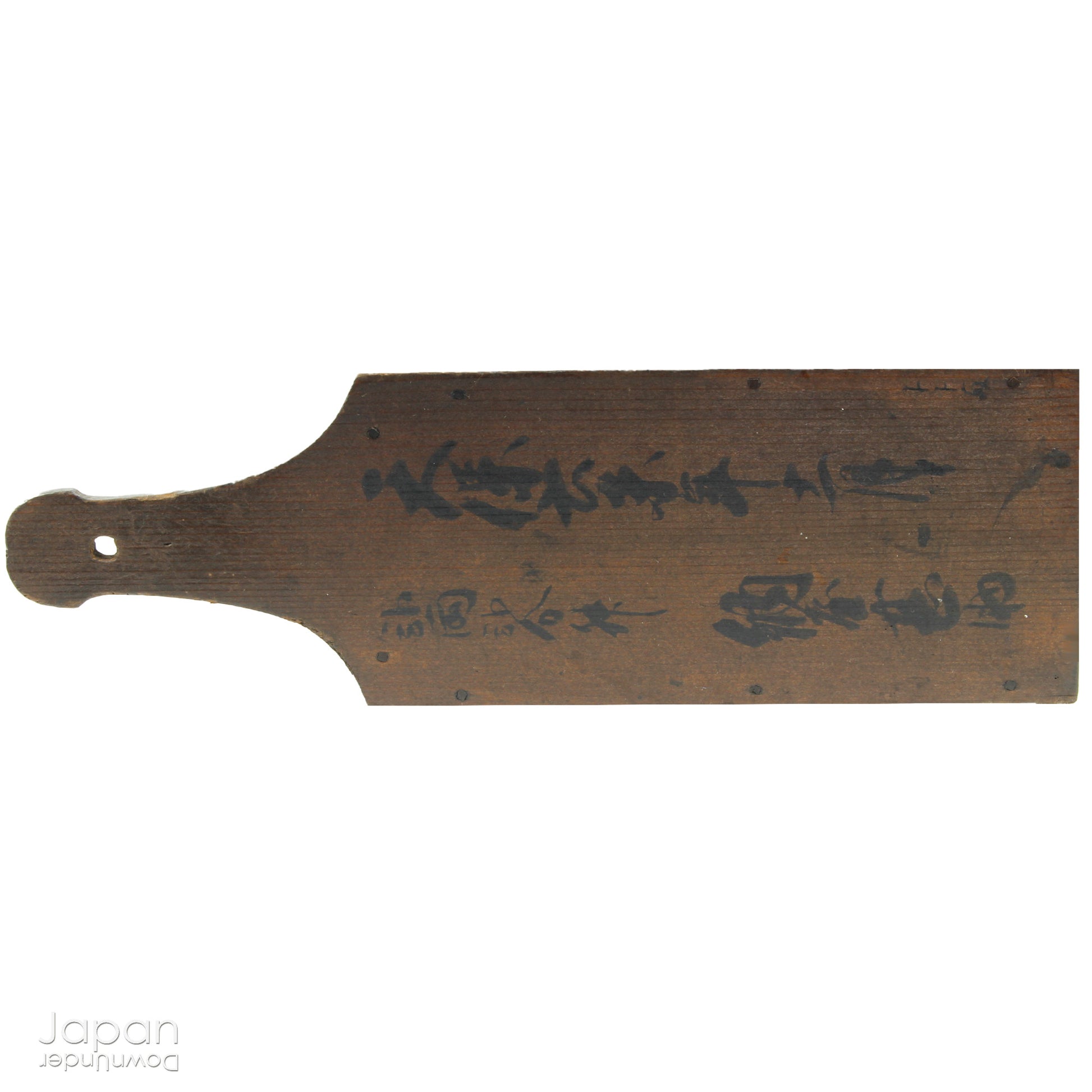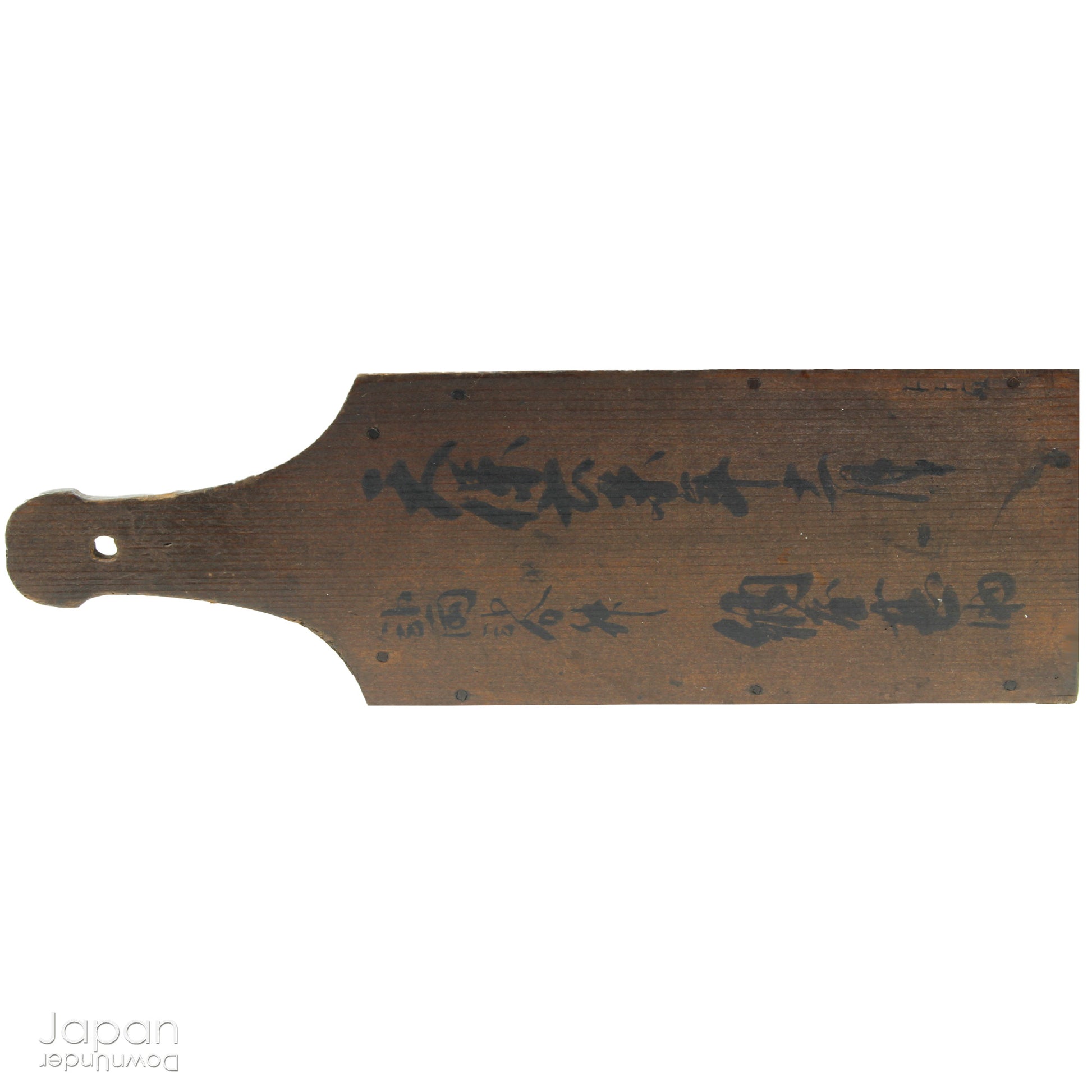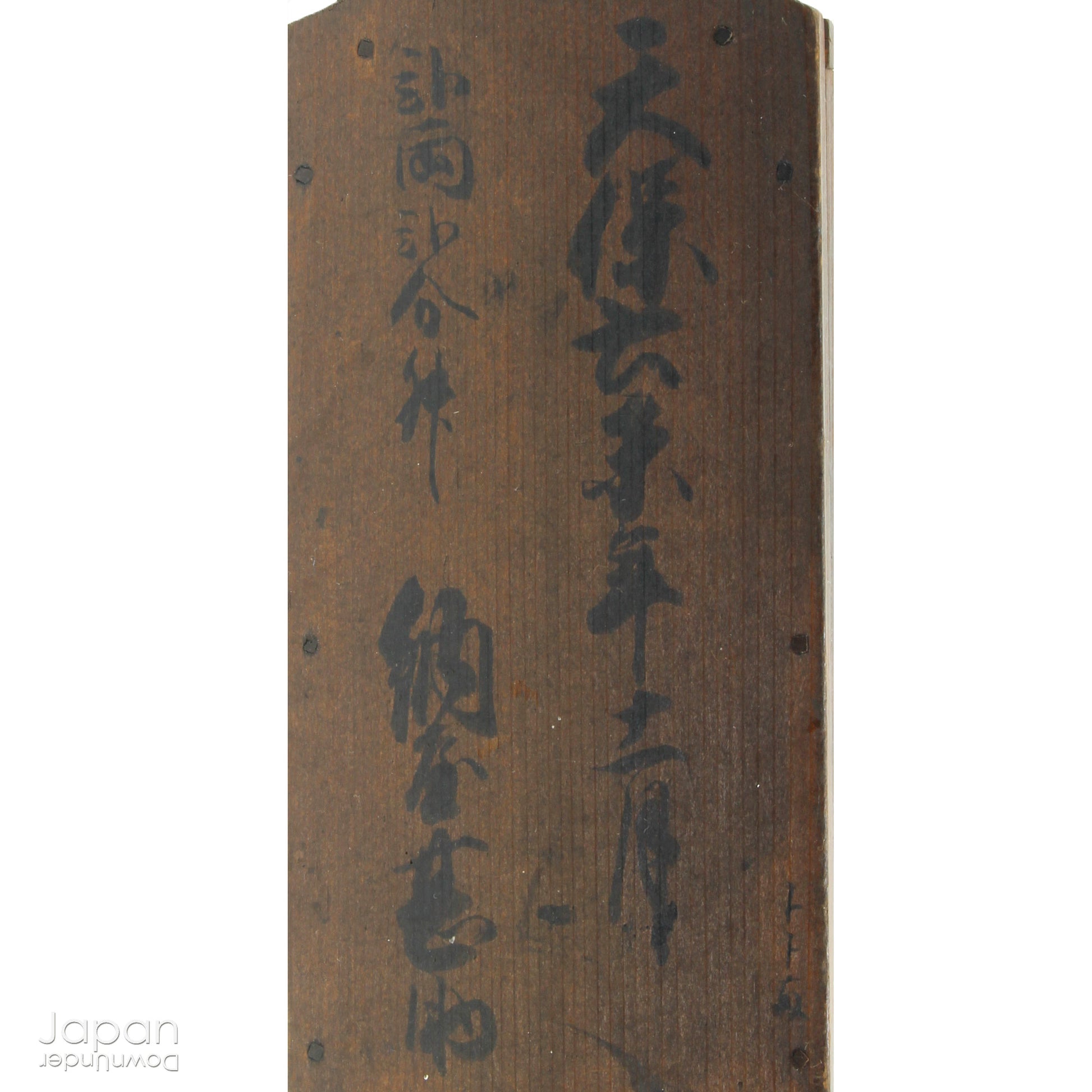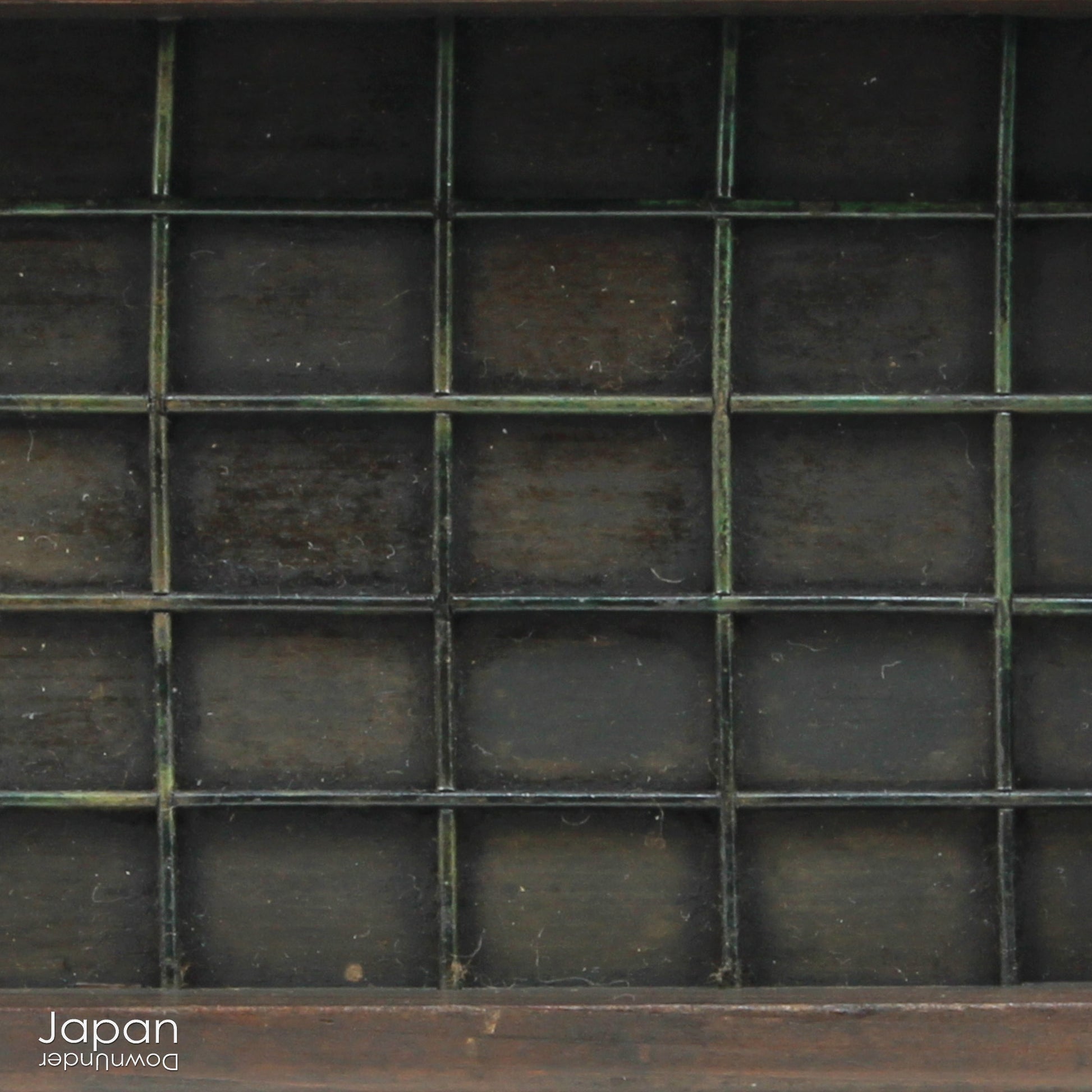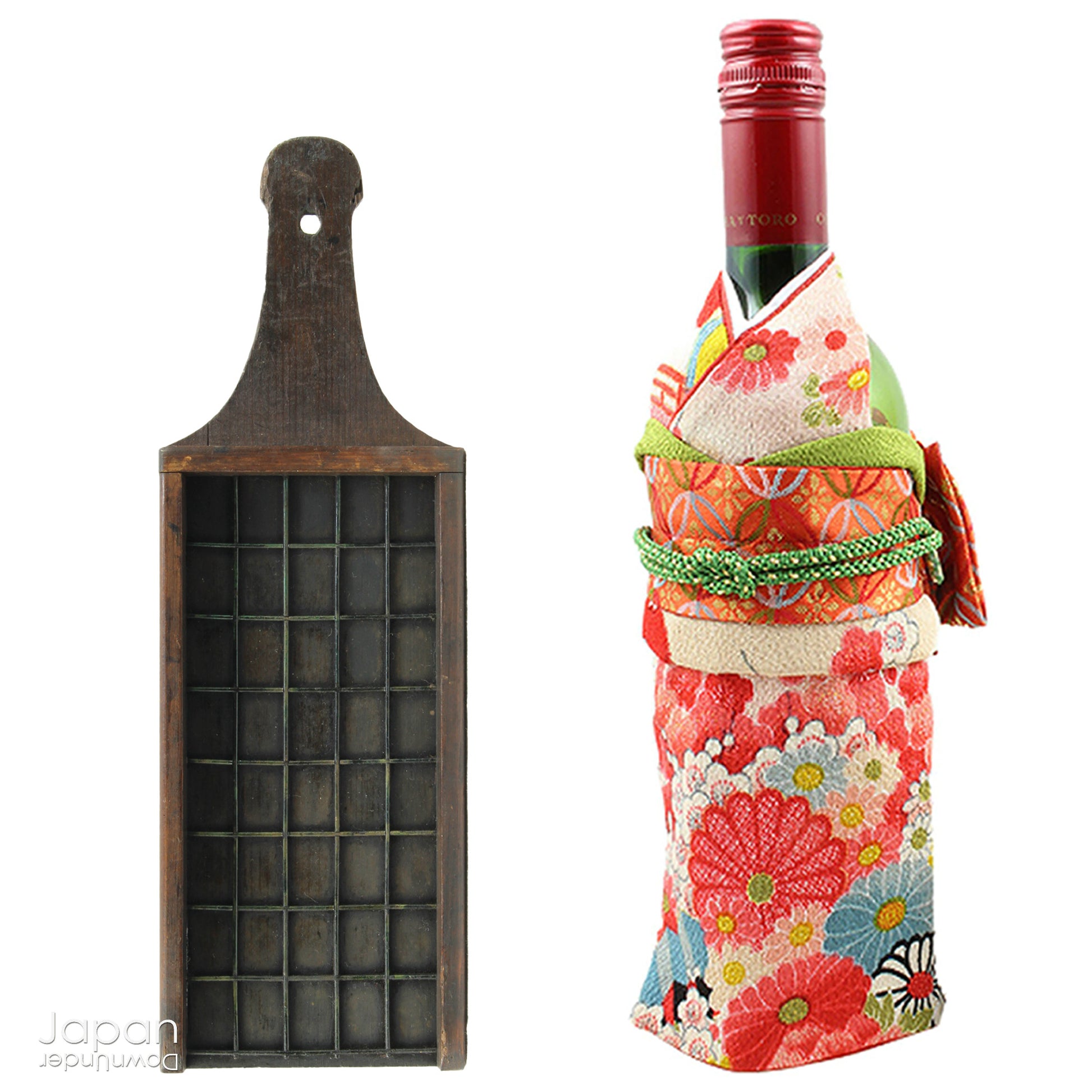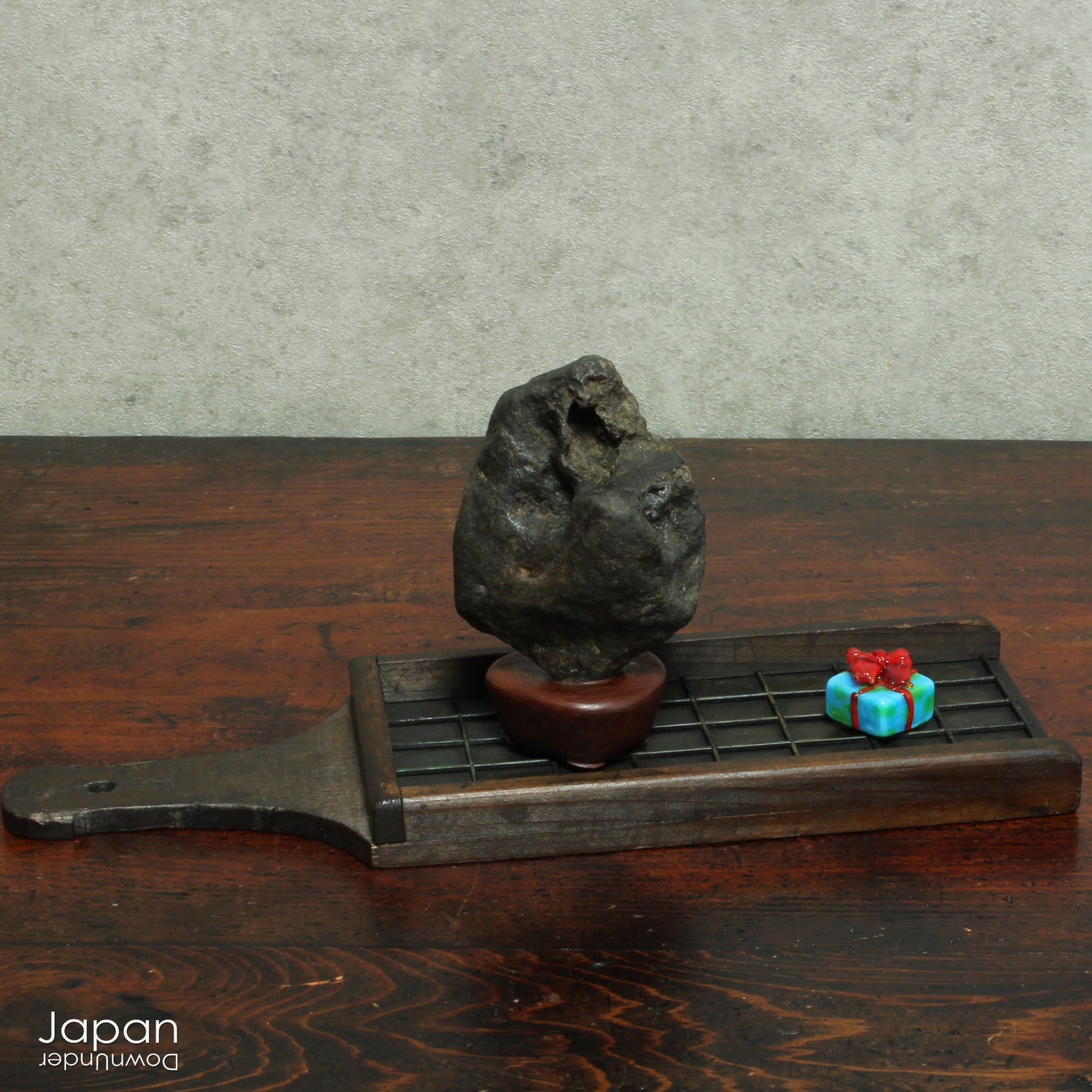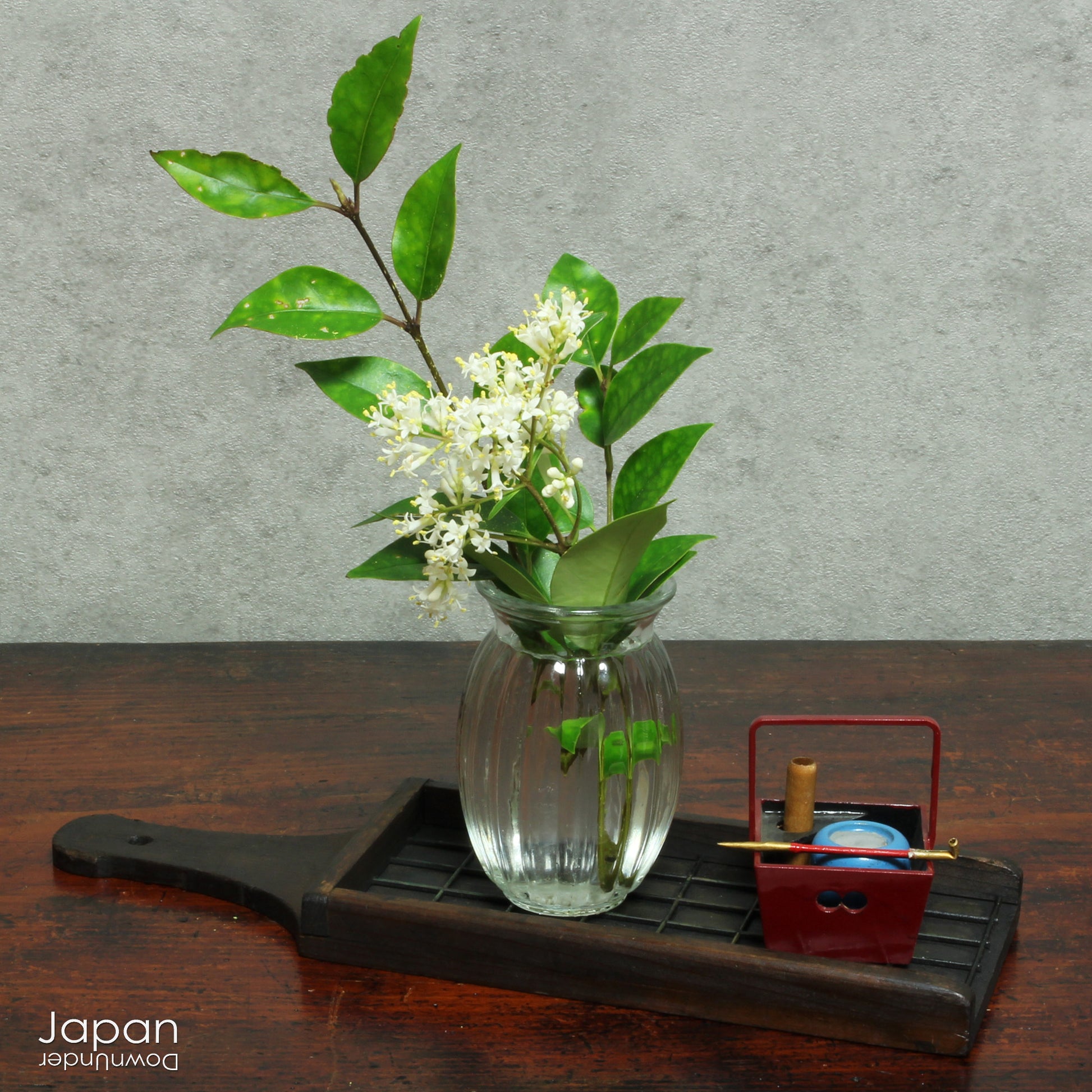JapanDownUnder
antique japanese banking tool for counting coins - decorative wall or stand accent
antique japanese banking tool for counting coins - decorative wall or stand accent
Couldn't load pickup availability
Love Japanese Style Like We Do
Infuse your space with timeless charm and historical intrigue with a rare Japanese Zenimasu, an antique coin-counting tool once used in banks and post offices. Whether displayed on a wall or repurposed as a rustic stand, this beautifully aged piece brings unique character and story to any room.
What is a Zenimasu?
The Zenimasu is a traditional Japanese money-counting board, expertly crafted from wood in a rectangular shape with a handle - reminiscent of a battledore. Inside the wooden frame lies a precisely constructed metal grid. Coins were tossed onto the grid and gently shaken from side to side; matching coins would settle into the metal slots while the extras slid off. With a set number of partitions, these boards enabled quick, accurate counting.
A Glimpse Into the Past:
Zenimasu boards have their origins in the Edo Era (1603–1868), when Japanese currency was counted in multiples of four. Earlier boards often featured 40 or 80 squares to match this system. Following the introduction of decimal currency in 1871 during the Meiji Era, newer boards were designed with 50 partitions for easier calculations in base ten. These boards continued to evolve through the Taisho (1912–1926) and Showa periods, each reflecting the materials and craftsmanship of their time.
Rustic Beauty & Cultural Legacy:
This particular board, unique in its own wear, patina, and handcrafted character, is a larger and later board with 50 squares made to cater for the decimal system. Whether hung on a wall or used as a base to display a small vase or sculpture, it offers a beautiful blend of function and folk art. Pair it with items like kashigata sweet molds or a traditional abacus for an authentic mingei (folk craft) aesthetic.
More Than a Tool - A Celebration of Everyday Craft:
For much of history, everyday tools like the Zenimasu were considered ordinary. That changed in 1926 when philosopher and art critic Soetsu Yanagi founded the Japanese mingei movement, celebrating the beauty found in practical objects made by anonymous craftspeople. Today, these once-utilitarian items are appreciated not only for their function but also for their artistry, history, and soul.
Add a piece of this story-rich tradition to your home - a quiet conversation starter that speaks of craftsmanship, culture, and timeless design.
- measures 26 cm (10.2”) long x 8.5 cm (3.3”) across x 2 cm (0.8”) deep.
- weighs 85 gm.
(listing for counting board only)
SHIPPING INFORMATION
- please read our shipping notes in shipping policy.
- we use recycle packaging wherever possible and wrap for safety, rather than appearance!
ABOUT OUR VINTAGE, ANTIQUE AND OTHER ITEMS
We list pieces we feel are worthy of display. There may be scratches, dents, fading and signs of wear and tear. We try to explain the condition of each item exactly, but may miss something.
Information regarding the item and it’s age is obtained from dealers and our personal research. We do our best to give you the correct information but please be aware that we cannot guarantee this information.
Please message us prior to purchase with any questions you may have about our products.
A NOTE ABOUT JAPANESE TOOLS AND UTENSILS (DOGU)
Japanese craftsmen have been skillfully producing hand made tools and utensils from long ago. With great attention to detail and a love and respect of their craft they have created beautifully simple, yet highly functional objects.
A special spiritual reverence was, and still is, attached to the making of these objects. The Japanese word for tools and utensils is ‘dogu.’ This was originally the word for an itinerant monks belongings. It alludes to the spiritual value which craftsmen put on their tools and utensils.
Reinforcing this spiritual value is the Shinto belief that the kami (spirits) dwell in natures’ objects, especially trees. (Many Shinto temples have sacred trees wrapped in a shimenawa; a rope that marks the boundary between the spiritual world and the mundane world). Most Japanese tools and utensils are made of natural wood from the craftman’s local area and craftsmen treat that sacred wood with the utmost of care in all stages of production. Special techniques, that would not spoil the wood, are utilized. These techniques actually make the produced object stronger, giving it a longer life and avoiding wastefulness.
Share
